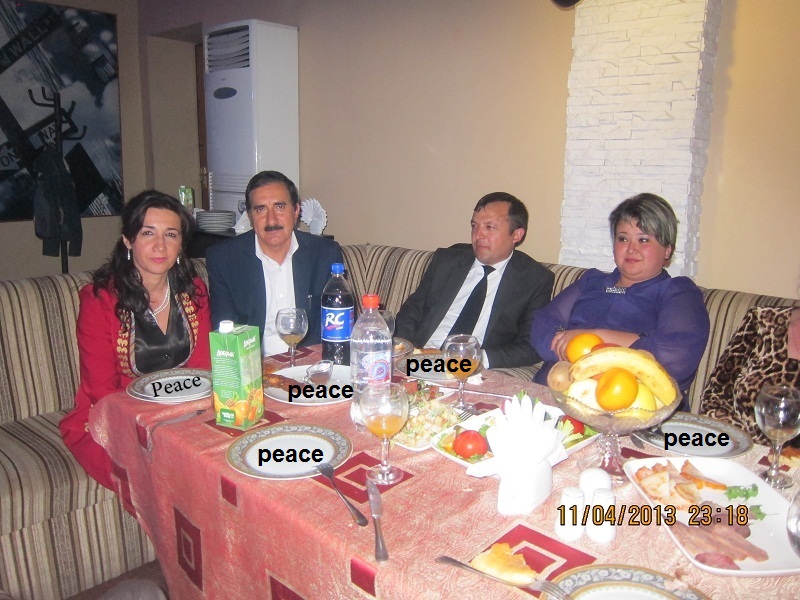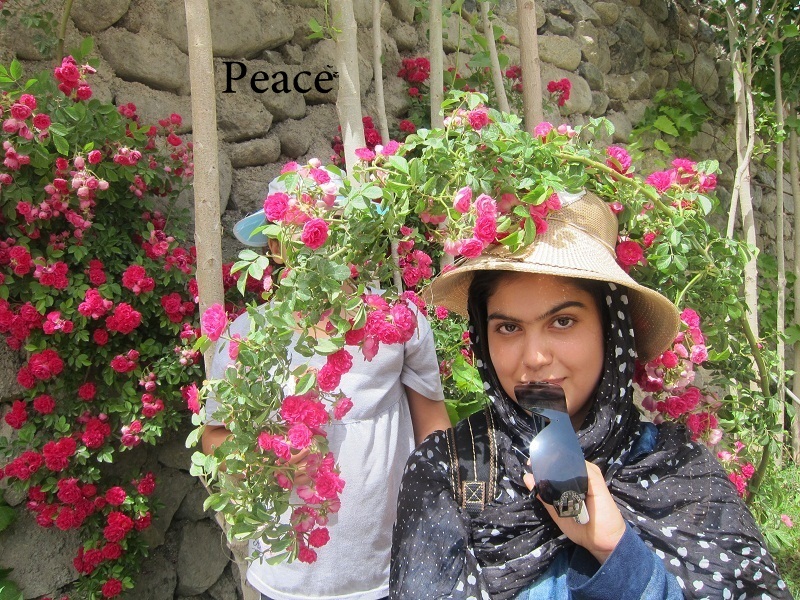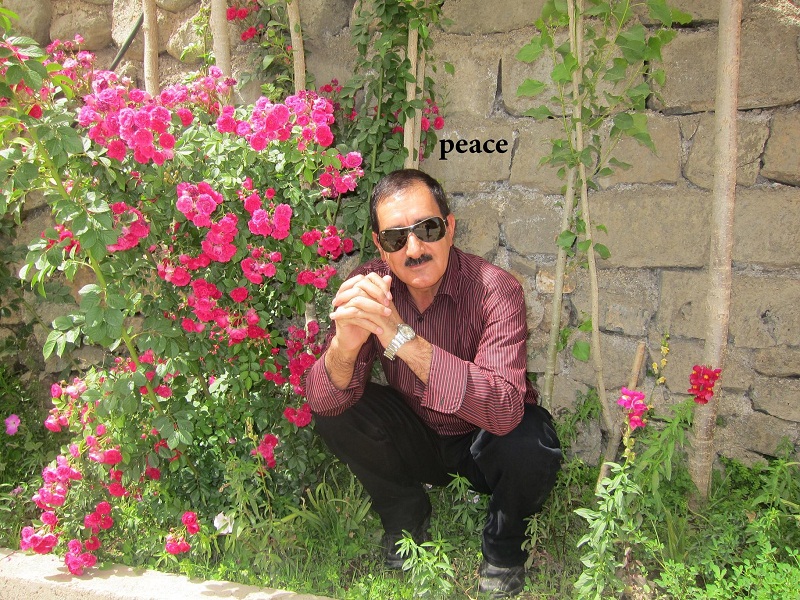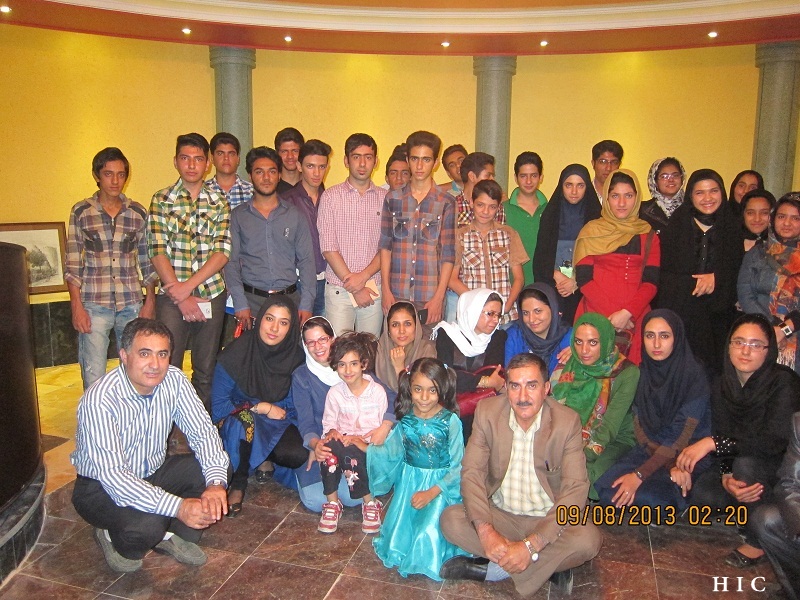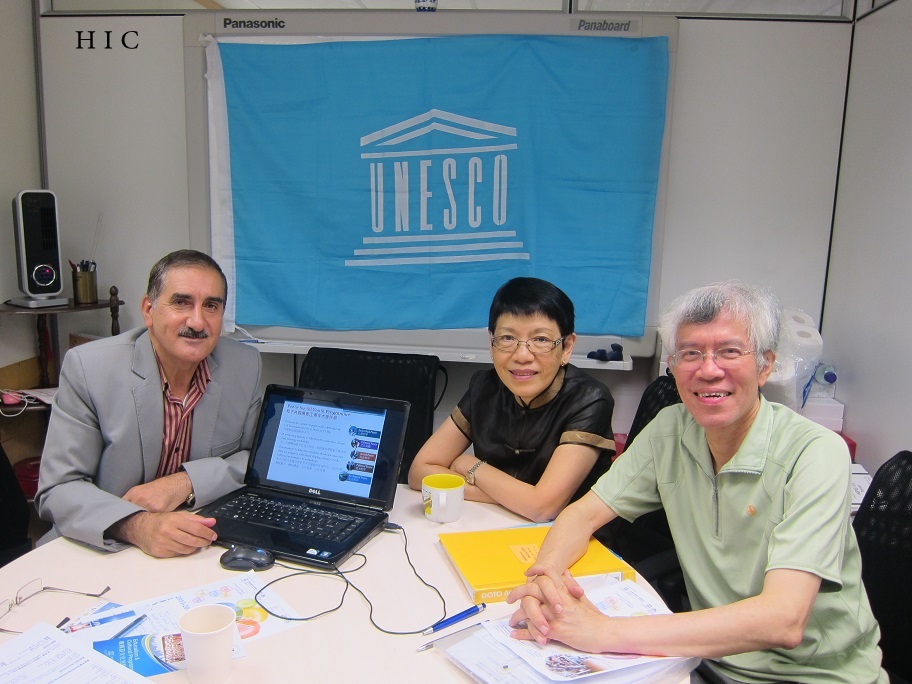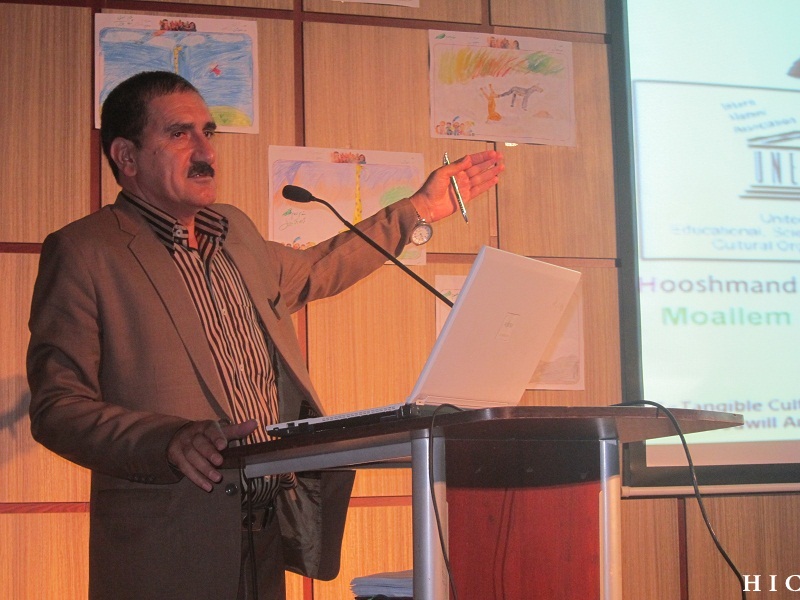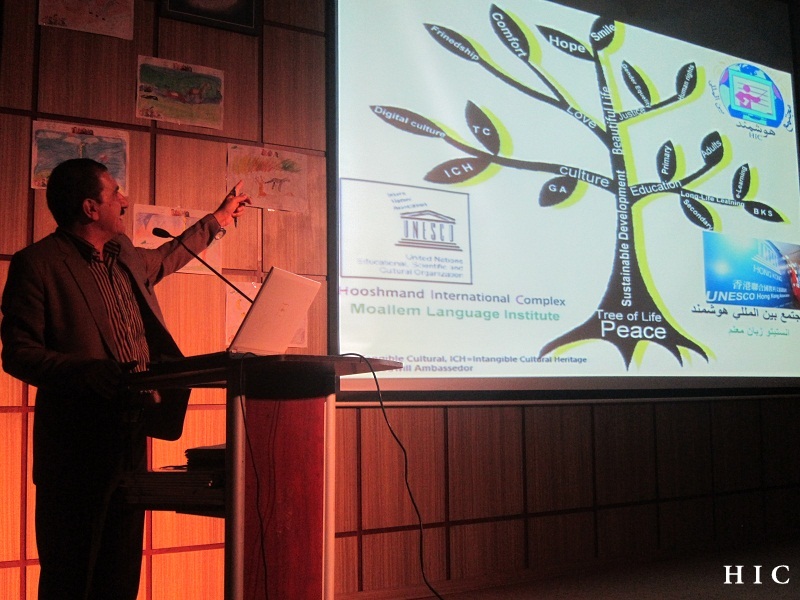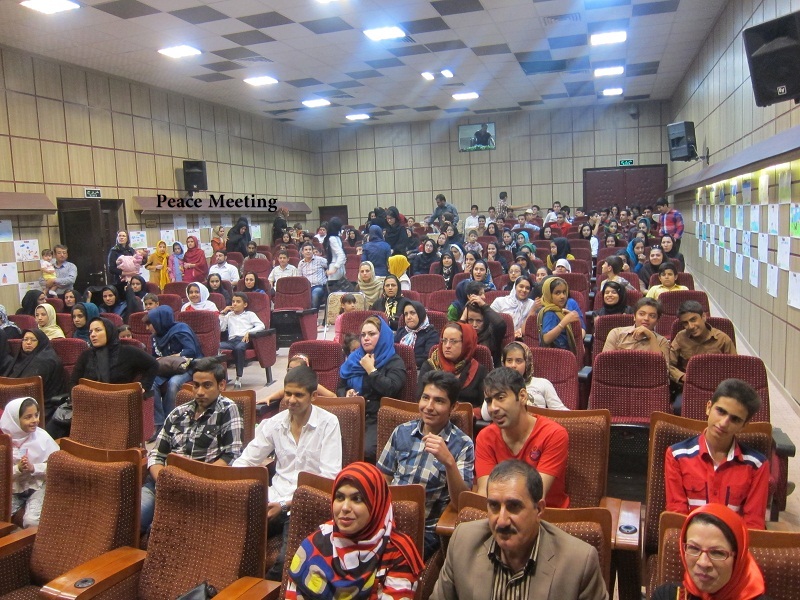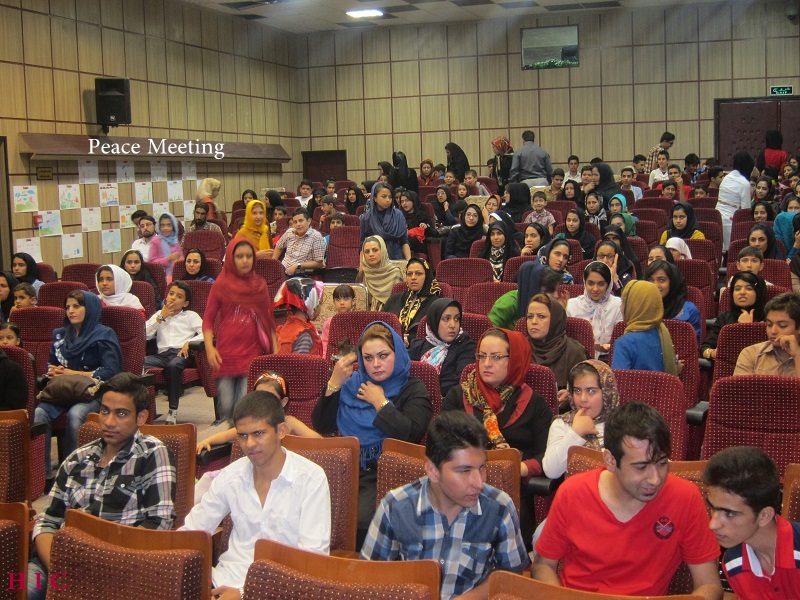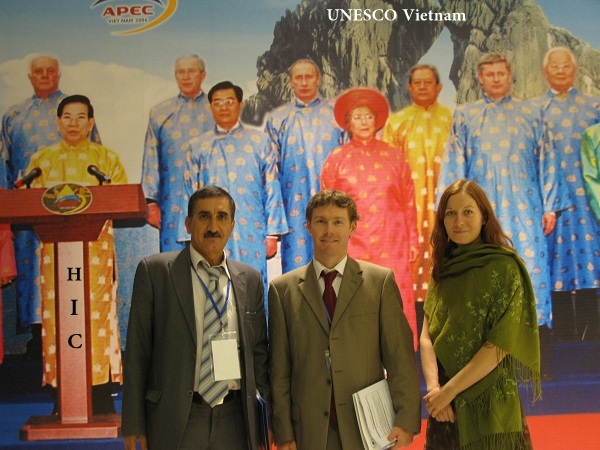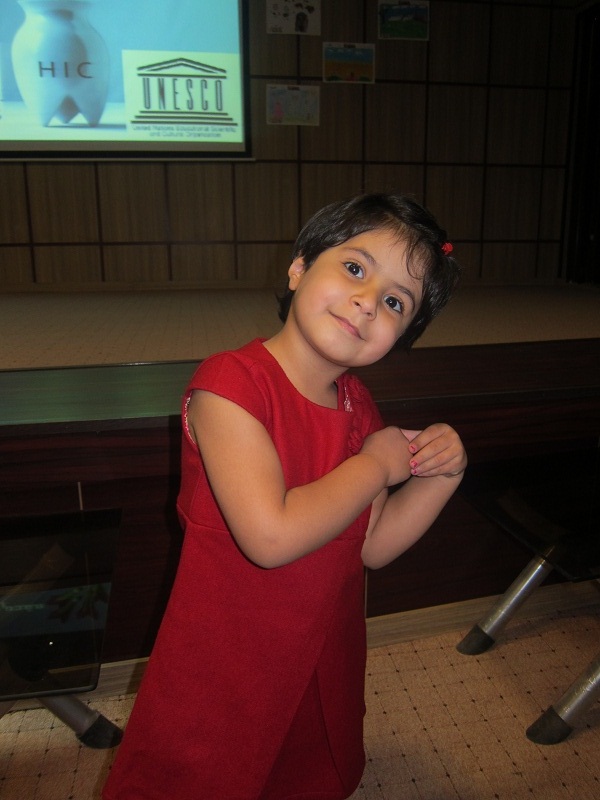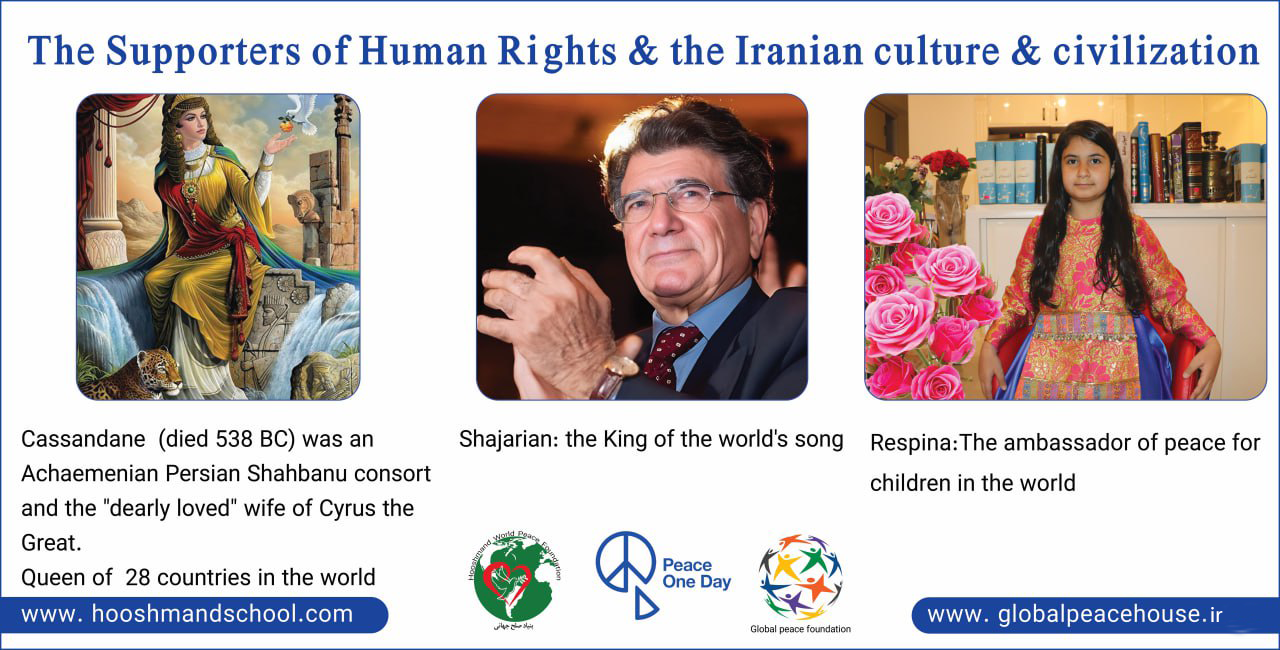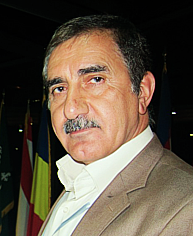
Mohammad Rafia Sadeghi the founder of Hooshmand World Peace Foundation
Hooshmand World Peace Foundation plays an important role in peace process in the world.
Headquarters and registered seat of organization: Iran
Organizational form: Officially recognized not-for-profit, non-governmental organization
Orientation: Non-political ,Non Relegious
Donate to the Hooshmand World Peace Foundation
We are grateful you decided to donate to the Global Peace Foundation! Your donation will be used to fund our peace-building efforts worldwide. With more support from individuals like you, we can build more partnerships for peace.
For more information, feel free to email us at This email address is being protected from spambots. You need JavaScript enabled to view it.
Peace is an occurrence of harmony characterized by the lack of violence, conflict behaviors and the freedom from fear of violence. Commonly understood as the absence of hostility and retribution, peace also suggests sincere attempts at reconciliation, the existence of healthy or newly healed interpersonal or international relationships, prosperity in matters of social or economic welfare, the establishment of equality, and a working political order that serves the true interests of all.
"Over the next 100 days, let us stand with the millions of people across the world who are suffering the devastating impact of violence and conflict. Let us share ideas and plans for helping and supporting them in their time of dire need."
UN Secretary-General Ban Ki-moon
Each year the International Day of Peace is observed around the world on 21 September. The General Assembly has declared this as a day devoted to strengthening the ideals of peace, both within and among all nations and peoples.
The theme of this year’s commemoration is “Partnerships for Peace – Dignity for All” which aims to highlight the importance of all segments of society to work together to strive for peace. The work of the United Nations would not be possible without the initial partnerships that were active in its creation and the thousands of partnerships each year between governments, civil society, the private sector, faith-based groups and other non-governmental organizations that are needed to support the Organization in achieving its future goals.
The International Day of Peace was established in 1981 by resolution 36/67 of the United Nations General Assembly to coincide with its opening session, which was held annually on the third Tuesday of September. The first Peace Day was observed in September 1982.
In 2001, the General Assembly by unanimous vote adopted resolution 55/282PDF document, which established 21 September as an annual day of non-violence and cease-fire.
The United Nations invites all nations and people to honour a cessation of hostilities during the Day, and to otherwise commemorate the Day through education and public awareness on issues related to peace.
Secretary-General's 100-day Countdown Message
13 June 2015
Every year on the International Day of Peace, the United Nations calls on the people of the world to reaffirm their commitment to living in harmony as members of a single human family.
This year’s commemoration, “Partnerships for Peace -- Dignity for All”, highlights the importance of cooperation in silencing the guns and advancing the cause. Without the support of governments, civil society, the private sector, faith-based groups and non-governmental organizations, peace will remain elusive.
This year marks the 70th anniversary of the United Nations as well as a transition to a new global sustainable development agenda and meaningful action on climate change.
Over the next 100 days, let us stand with the millions of people across the world who are suffering the devastating impact of violence and conflict. Let us share ideas and plans for helping and supporting them in their time of dire need.
Together, as “partners for peace”, we can achieve a world of peace, prosperity and dignity for all.
Ban Ki-moon
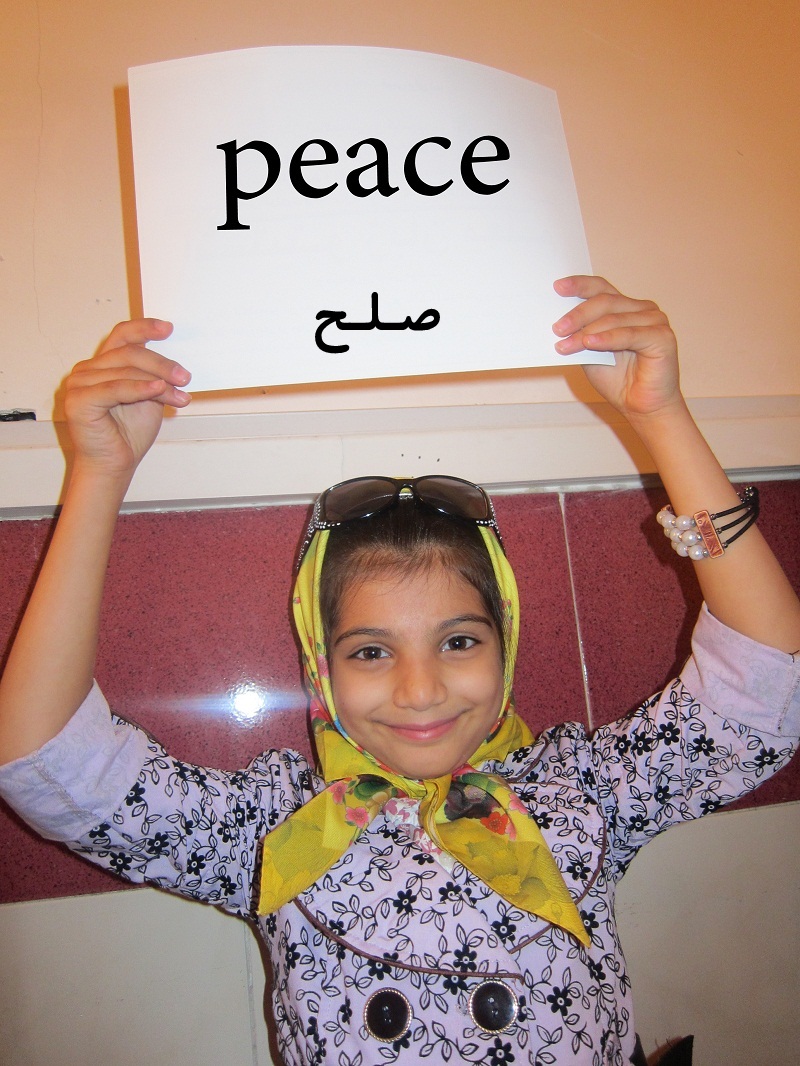

Dear Mohammad Rafia,
I hope this finds you well.
As you know Peace One Day works to raise awareness of and encourage action on Peace Day, 21 September. The activities you organise, however big or small, raise awareness of the day. It’s our collective effort that makes this day a success.
We are always looking for new ways to spread the message of Peace Day. A trip to the Google offices in New York seven years ago with Peace One Day Ambassador, Jude Law, gave me an idea that I have never forgotten: a Peace Day Google Doodle. With hundreds of millions of daily visitors, getting Google.com to create a Peace Day Google Doodle on 21 September is one of the greatest things we can all do to inform the world’s people.
Awareness of Peace Day creates action, and that action saves lives. So getting the world’s most powerful search engine behind Peace Day will be a key moment for institutionalising the day in our homes, schools, workplaces and communities.
But we need your help. We need you to email Google (details below) asking them to mark Peace Day with a Google Doodle. By telling them your stories and why the day is important to you, we can encourage Google to take action for the day. For more information, visit: http://www.peaceoneday.org/googledoodle
Find out more about the Google Doodle campaign with this short film: https://www.youtube.com/watch?v=XewErzobK6A
Here are three simple steps you can take to help:
1. Email This email address is being protected from spambots. You need JavaScript enabled to view it. to ask for a Peace Day Google Doodle on 21 September.
2. Tell others via social media that you have asked for a Peace Day Google Doodle and ask them to do the same.
3. Tweet @GoogleDoodles to tell them about Peace Day, 21 September.
We have created a range of resources including templates to help you:www.peaceoneday.org/googledoodle
By getting involved, you can be part of forging the next key milestone for the day – getting the world’s most powerful search engine behind Peace Day, 21 September.
Warm regards,
In peace
Jeremy
Jeremy Gilley
Founder, Peace One Day

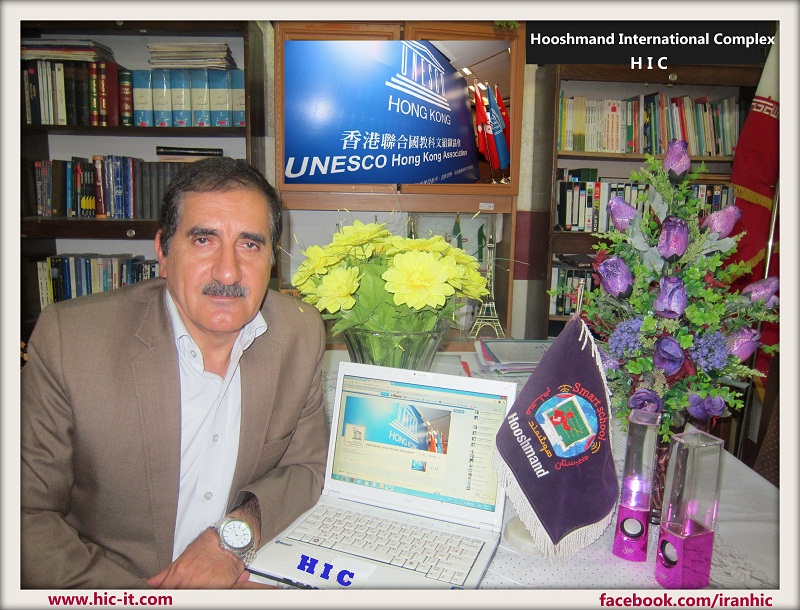
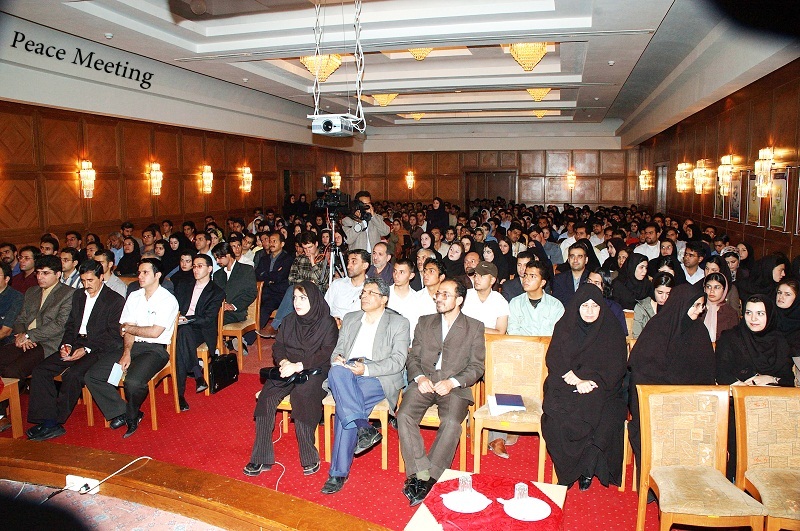
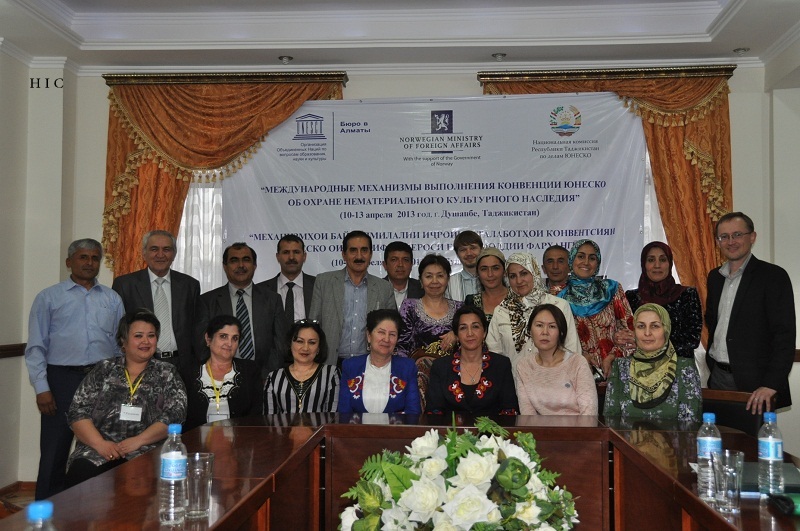
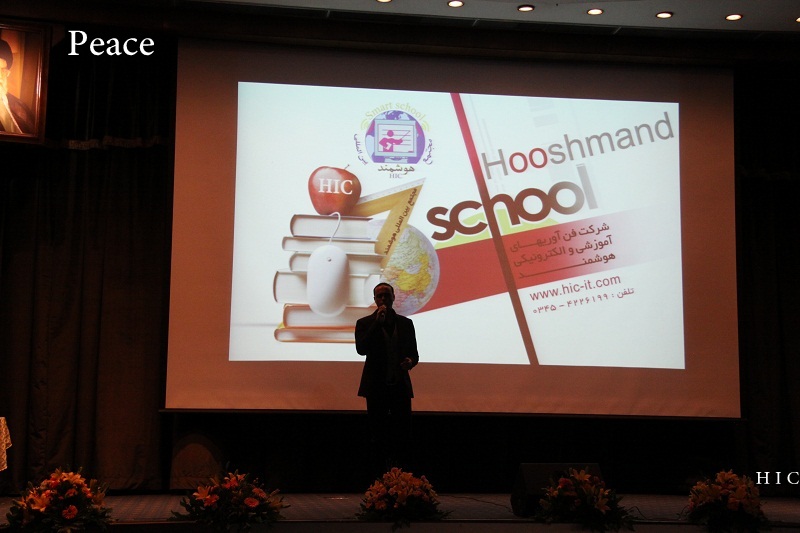
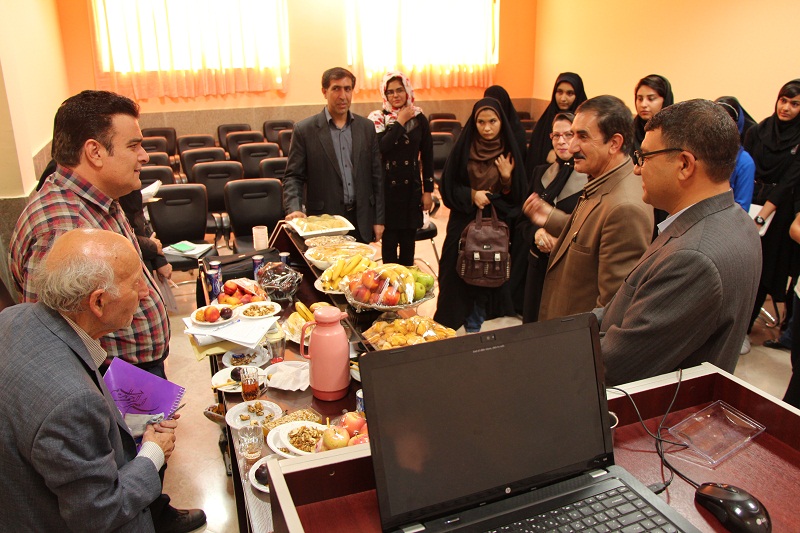
Peace for All Programme
Peace for All Programme aims to promote peace and cultural diversity and provide a platform to students for intercultural dialogue, cultural discovery and exchange, with support from consulates general, chambers of commerce, national tourism boards, community organizations and education institutions
To promote cultural diversity, tolerance, intercultural dialogue, mutual understanding, and respect for different traditions and customs
To bring local and international schools together to work for peace
To support school curriculum demands in the IB and DSE systems
To promote in students positive values and attitudes, and be informed and responsible citizens
5 Aspects of Peace Written by: Vickie Yau
Individual Peace
Peace and the individual
Cultivation of self is considered the key to order and peace at home and in the greater society (The Great Learning, Book of Rites). Cultivation of self starts with education that develops our knowledge, understanding and skills. More importantly, education extends to cultivating values and character that implicates the well-being of ourselves and others, through the ways of communication, mindset and attitude, decisions and actions. We must first learn to understand ourselves, our purpose and vision of peace. Second, we must realize our ability to make an impact and act upon it. Focus on what we can do and no deed is too big or too small. In daily life, we can cultivate peace within ourselves that involves others. We should only bear kind thoughts, speak kindly, and act with considerations of others. This includes the creatures and resources in nature, and infrastructures and materials we have created in the world. Knowledge is what empowers us to act more conscientiously.
Learn to act as a Peacemaker. It is our duty and responsibility to maintain and preserve peace for all
Act as a model and influence others to be a Peacemaker.
Commit to act, participate, and contribute to everyday peace
Cultural Peace
Peace across cultures, peace through cultures
Cultures are shared meanings, values, attitudes, perspectives and beliefs among groups of individuals in a social context. Cultures are not innate to being human, but are nurtured through our community and society. As such, we are influenced by our environment, but we can also influence our cultures if we become agents of culture. This can be achieved through learning about other cultures and by welcoming others to learn about our own cultures. In this globalized world, we must foster understanding, inclusiveness and respect of cultural differences and embrace diversity. To begin with, we must first understand our own culture and society, learn about others, and be open minded and accepting of other cultures. Find commonalities and a unifying vision that all cultures can embrace and strive towards.
Preservation and respect of differences, multiple cultures and perspectives enrich our lives. As cultures are shared meanings and values, let peace be the culture that unites us all.
Social Peace
Peace in society and community
We are social beings, and a society functions as a whole with each of us playing a role as citizens and as social members of our communities. We must first be responsible to do our part for a harmonious society, that being, act as a person with integrity and righteousness, and with the well-being of others in our mind. Founding on the basis of being just and kind, we must realize we work together in a society and we must overcome challenges and adversities together in order for our society to progress. Progress and success must be realized with respect for limitations of natural resources, environmental and economic capacities. Progress and success is when all of us in our society and others whom we rely on are all in an advanced position.
Be mindful of one’s roles and responsibilities as members of the society and do our part. Collectively, we can achieve greater things than we can by ourselves.
Political Peace
Advocacy for peace for all
Think globally, act locally, to create world peace. As peace is often understood in the political context of conflict, violence and war, our contribution and ability to maintain and promote political peace may become alienated from our daily lives as a lot of us have been very privileged to be in a war-free zone. Peace is not given and should never be taken for granted. Conflict and violence do not happen without causality, and can be prevented and mitigated. We contribute to political conflict and violence when we tolerate acts of injustice, verbal attacks, and resistance to resolve situations that threaten stability and peace. Negotiation and mediation must consider an equitable and just resolution where all stakeholders can be better off. In order for our society to advance and to attain peace for all, we cannot, and must not tolerate injustice and violation of human rights, and we must fight for the rights to education, food and water, health care, and gender equality for all.
In our day-to-day life, we must uphold principles and beliefs that peace can only be founded upon partnership. Be a peacemaker by preserving harmony and unity.
Ecological Peace
Preservation of ecology and peace
We share one planet with limited resources available. As we are challenged by climate change, melting glaciers, catastrophic disasters and the likes, all of these have an immense impact on each and every one of us. Much of our daily life contribute to climate change as our consumption, pollution and carbon emission disrupts nature’s ability to reverse and regenerate. As we can readily understand and observe, droughts and floods affect agriculture and livestocks in the region and threatens
livelihood in the area. Furthermore, temperature in the ocean has been fluctuating and affects the life cycles and reproduction of many oceanic life forms that are critical to ecology and to human. As glaciers melt and causes water level to rise, coastal shorelines retreat forcing people along the coast to relocate. These briefly mentioned facts are only the tip of an iceberg with laden implications on a chain of effects.
As we have the intelligence to build and develop on this planet, we have the ability to find solutions for sustainable development. Start by being conscious of our day-to-day action in a holistic manner. Start by reducing our use of energy, water, materials, and food to minimize waste. Make a small change every day.
.
- .
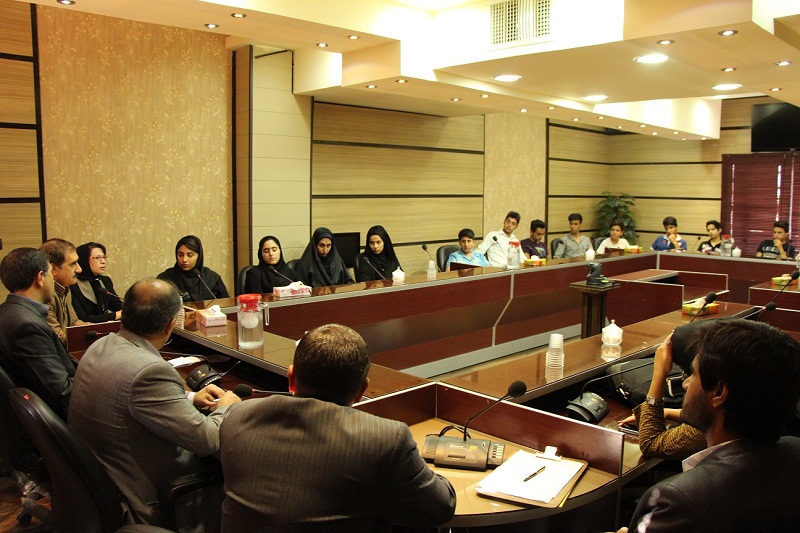
Peace in the words of the others
We look forward to the time when the Power of Love will replace the Love of Power. Then will our world know the blessings of peace. ~William Ewart Gladstone
If we have no peace, it is because we have forgotten that we belong to each other. ~Mother Teresa
Peace cannot be achieved through violence, it can only be attained through understanding. ~Ralph Waldo Emerson
One must look hard through history to find when a clear understanding of the truth moved anyone to fire the first shot. ~Robert Brault,rbrault.blogspot.com
If they want peace, nations should avoid the pin-pricks that precede cannon shots. ~Napoleon Bonaparte
The more we sweat in peace the less we bleed in war. ~Vijaya Lakshmi Pandit
